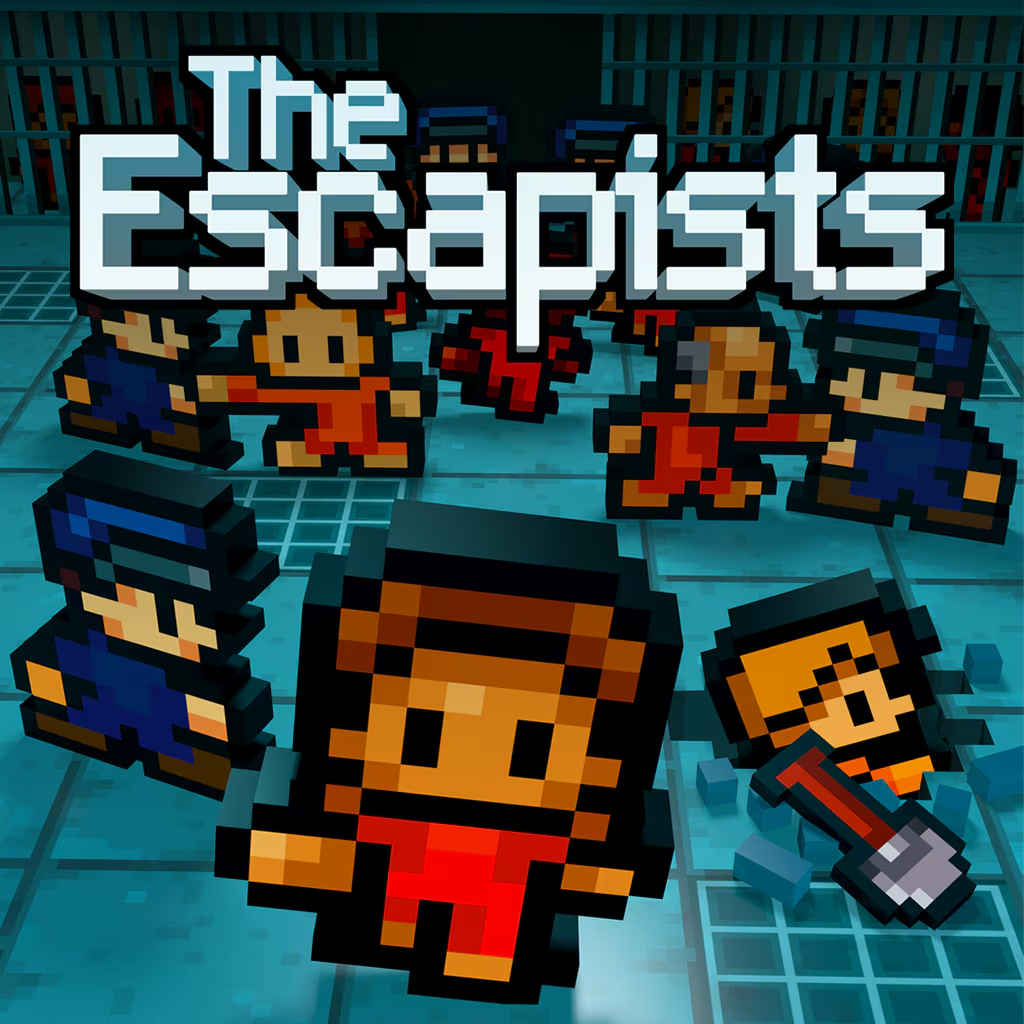SPOILERS AHEAD!
In The Escapists, you play as an inmate attempting to escape a series of prisons with increasing levels of security. In this 2D pixelart game, you spend your days inside a prison, the hours organized into scheduled periods such as time for work, exercise, and meals. At night, you must return to your cell.
If you do as you’re told and avoid causing trouble, nothing really happens. After a few in-game days of moving from Roll Call to Breakfast, Free Period, Lunch, Work Period, and so on, you might start to realize that the game isn’t really progressing. Things only get interesting when you start diverging from the presented game loop. Perhaps you purchase your first contraband item from another inmate, or maybe you fight your first guard and discover they are holding a key to a door you want to open. These antisocial behaviors are ultimately the seeds of your escape plan; you will inevitably have to fight, steal, and sneak your way to freedom.
There are several ways to escape each prison, but the common factor is that you must escape. As it turns out, you will never be “released” from this prison through good behavior or living out your sentence. To win each level, you must develop and successfully execute an escape plan. In all the escape plans I’ve hatched playing this game, each one required some immoral action.
This week, I learned of the term “Ludonarrative Dissonance.” Click Hocking coined this term in a blog post critiquing a disconnect between Bioshock’s presented narrative and the narrative created through the game’s mechanics. In short, there is dissonance when the game’s mechanics tell a different story from its narration. This dissonance certainly occurs in The Escapists.
Let’s say you need a guard’s weapon to help you in your escape. You find a guard walking alone, beat them up, and take their baton. When the guard wakes up, they chase you down to settle the score, but they won’t go looking for their lost baton if you’ve stashed it somewhere else. Once they get to beat you up, they stop bothering you: that’s all that happens! One slight change causes the game to completely change how it responds to your actions. If you happen to remove the guard’s key from their inventory and fail to return it before the guard wakes up, you are sent a message from the warden: “A prison key’s been reported stolen and we’ve linked it back to you. As punishment, I’m placing you in solitary confinement for a few days, hopefully it’ll teach you a hard lesson!”

I think the designers added this mechanic to encourage the player to craft a “key mold” and “wad of puddy” to copy the guard’s key without stealing it. Still, I was surprised how much harsher the punishment was for stealing the key compared to just beating up the guard. Why does stealing a key land you in confinement, but knocking out a prison guard doesn’t? Upon further inspection, it seems that the game punishes the player more harshly for the immoral actions that help them escape:
- Fighting one or two guards doesn’t trigger any severe punishments, but fighting several guards places the prison on lockdown.
- Some materials that can be used to craft contraband are not themselves contraband items.
- Dropping contraband items in the yard doesn’t trigger any mechanics, but dropping dirt from digging gets you sent to solitary confinement.
- Guards don’t search your cell if you’re caught stealing, but they do if you are put in solitary confinement.
From a design perspective, it makes sense to create mechanics that make it harder to complete the level. However, the punishment mechanics have a separate effect of redefining morality in the game. The game punishes you for fighting, but that punishment is so much more benign than the punishment for stealing keys that it’s basically telling you to stay in the prison and fight the guards every day instead of trying to escape. This clashes with the narrative that the prison setting primes us with, where all immoral behavior, not just escaping, will be adequately punished. Therein lies the dissonance.
I should give the sequel, The Escapists 2, a try to see how the punishment mechanics have changed. I suspect the sequel will have a more fleshed-out system of mechanics than the first title.
Image Credit: The Escapists – Mouldy Toof Studios




